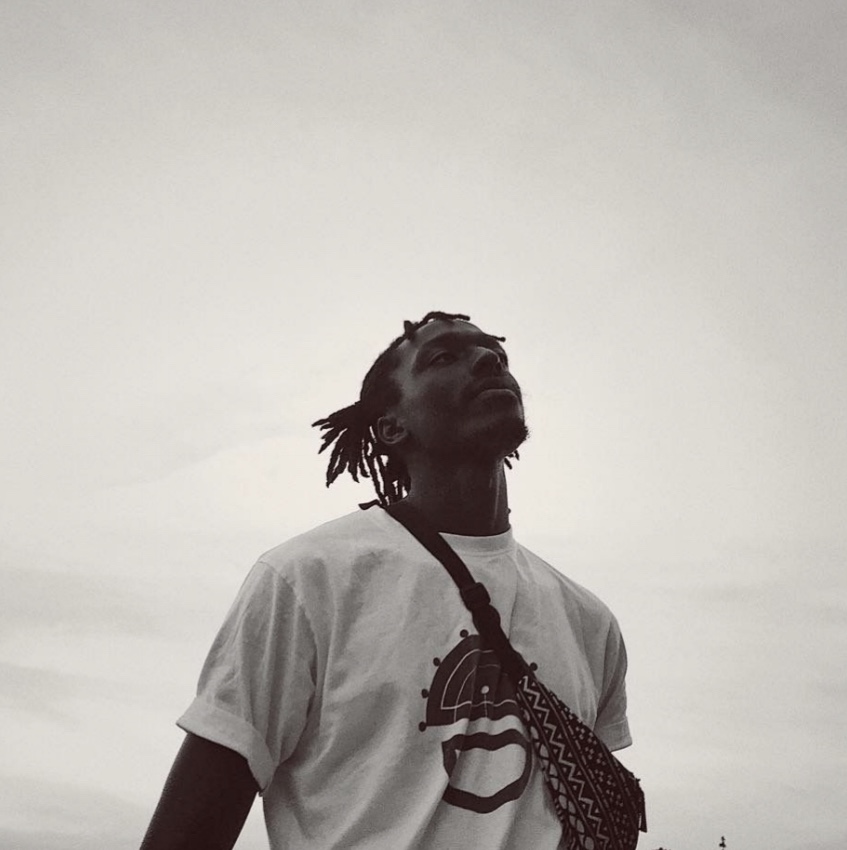5 th October , 2019
Djibril Drame’s work strives to shed light on socially and politically relevant issues affecting our world today—discrimination, religion, race, and gender identity. With his studio and curatorial practices, Drame seeks to promote love, peace, balance and understanding. His work reflects many aspects of Africa’s multifaceted history, innumerable intertwined cultures, languages, stories, and lifestyles, while offering alternative African narratives.
In the past few years, Drame has been heavily involved in film, releasing two short films which have been featured in festivals and art tours internationally. Drame is the winner of the Fresh Voices Award 2019, at Key West Photography Festival.
Drame has also curated photography shows throughout Africa and North America, including the “Full Moon” exhibition at the Afro Music Festival held in Los Angeles.
Drame is an independent scholar with a BA in journalism, communication, and public relations, and has earned a certification in curatorial arts from International Curators Independent (ICI) an organization based in New York.
We are pleased to present the following images s from the series “Color Coded”, shot in James Town, Accra, Ghana, 2017.
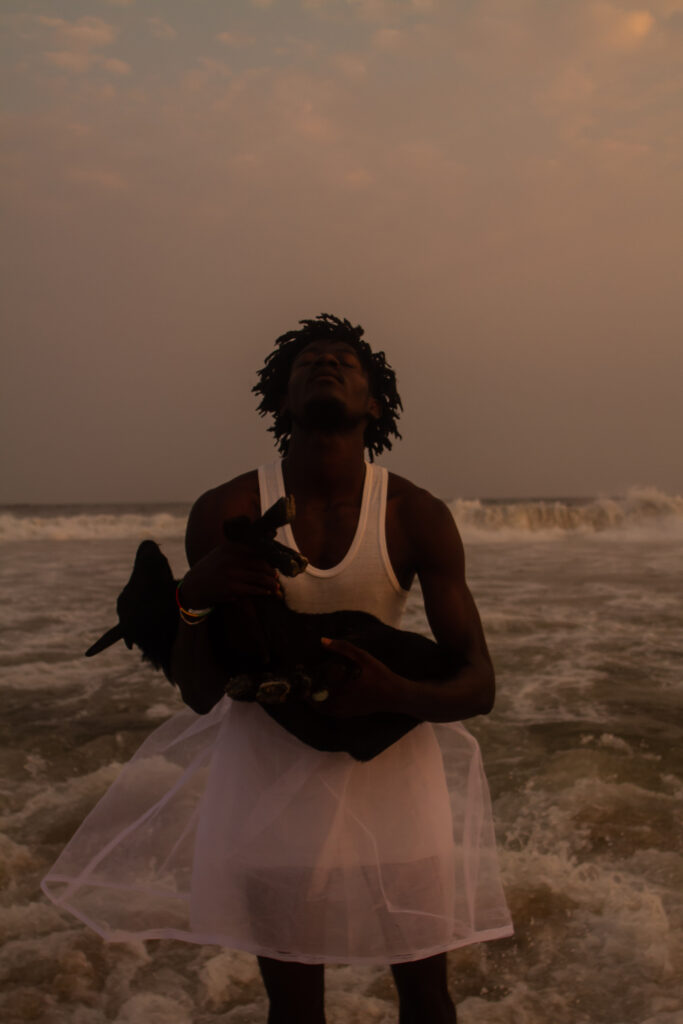
ArtX: Tell us about you as a person.
Djibril Drame: Djibril Drame is my name but people know me more by the name of Gadaay. Family and friends call me Djiby or Djibson, but I like going by Djibril. I am based between Los Angeles and Dakar, Senegal. I am Senegalese, but my grandparents are from Mali.
How long have you been practicing art professionally and when did you consider yourself a real artist?
I have been practicing professionally since 2012. I started considering myself as an artist since I was a kid. Starting with poetry then graffiti before finding my real tool which is photography, in 2004.
Tell us about your training.
I studied Journalism and Communications at university in Senegal. Then I had some training in Art Curatorial with International Curators Independent. But my art training was more informal with my cousin Deep.
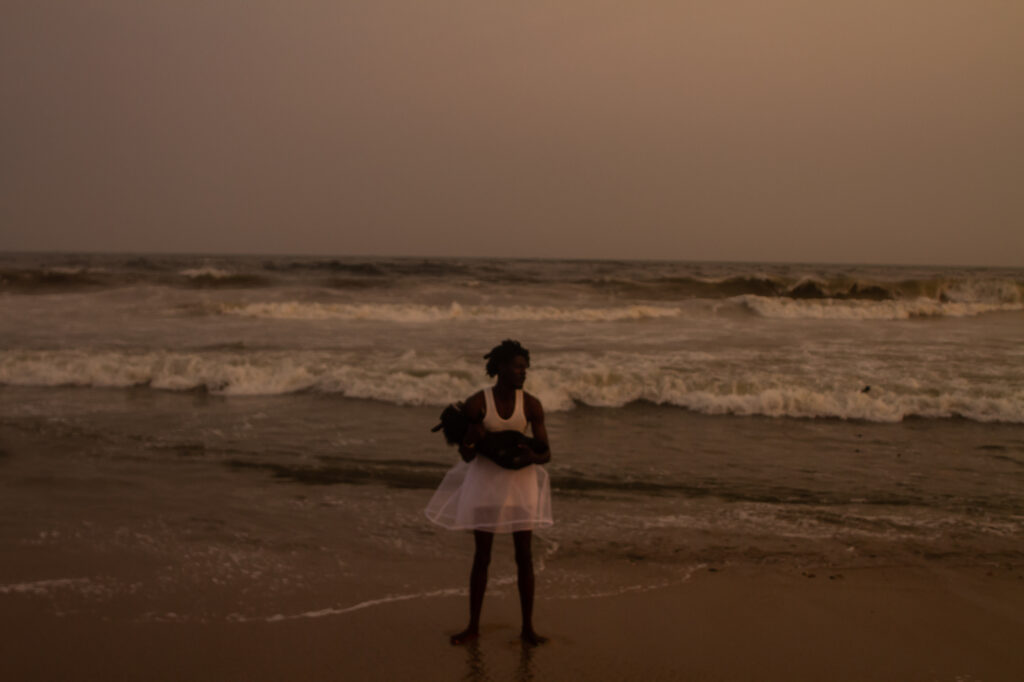
What medium do you prefer to work in?
Photography is my favorite medium because of the intensity from the creation to the realization. Also, I do like the process.
Who are some of your art inspirations? What are some of your non-art inspirations?
Senegalese filmmaker, Djibril Diop Mambety, Senegalese musician, Wasis Diop, graffiti artist Jean Michel Basquiat, Louise Bourgeois, Niki de Saint Phalle, Chaz Guest, Docta (The Grandfather of Senegalese Graffiti), and Bibi Seck are my art inspirations.
Scientist Cheikh Anta Diop and boxer Muhammad Ali (poetry), Serigne Touba, Elon Musk, and Abdoulaye Wade are my non-art inspirations.
When do you know when a work is finished?
When a person who is not art-oriented, looks at my art and feels inspired.
Tell us about your process when working. Do you listen to music or perform rituals to get ready to make art?
When I create a project I like to go hiking, play basketball or soccer. Spending time alone is my ritual.
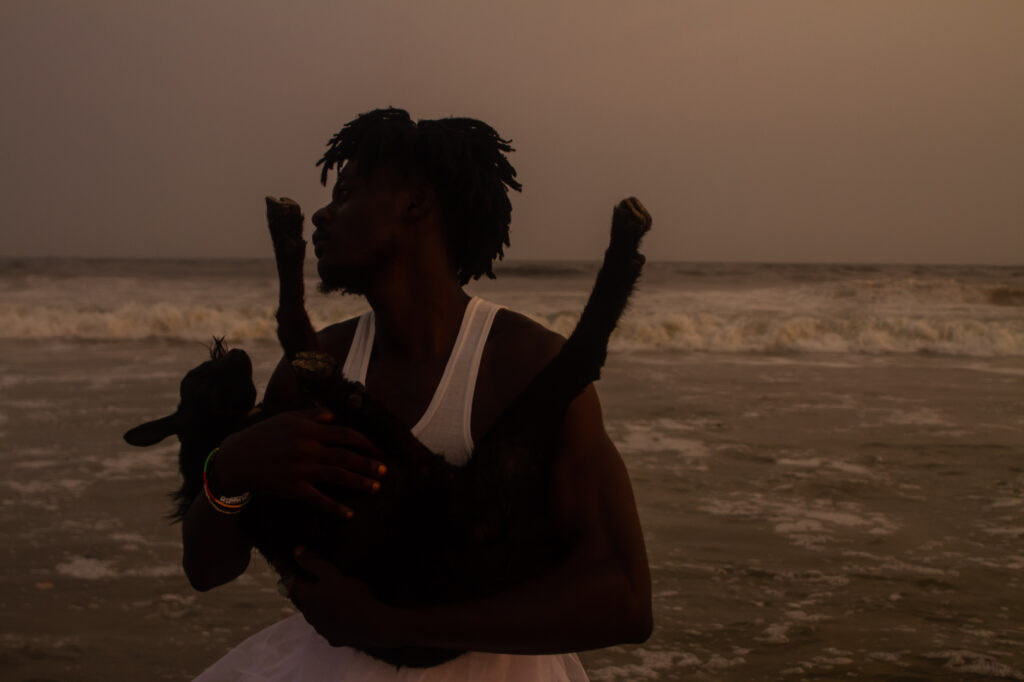
Tell us about the meanings and the concepts behind this particular body of work.
Behind every element of this series of photos shot on a beach in Jamestown, Accra, Ghana, hides strong symbolic meanings: the white goat represents sin, oppression, negativity, the black goat represents purity, beauty, happiness, a black man that represents everything about being oppressed, whether it’s for his color, sexuality, or religion … Color-Coded is a kind of ritual bath for a return to self, where the man gets rid of what harms and oppresses him, and embraces his true nature and all the potential it contains.
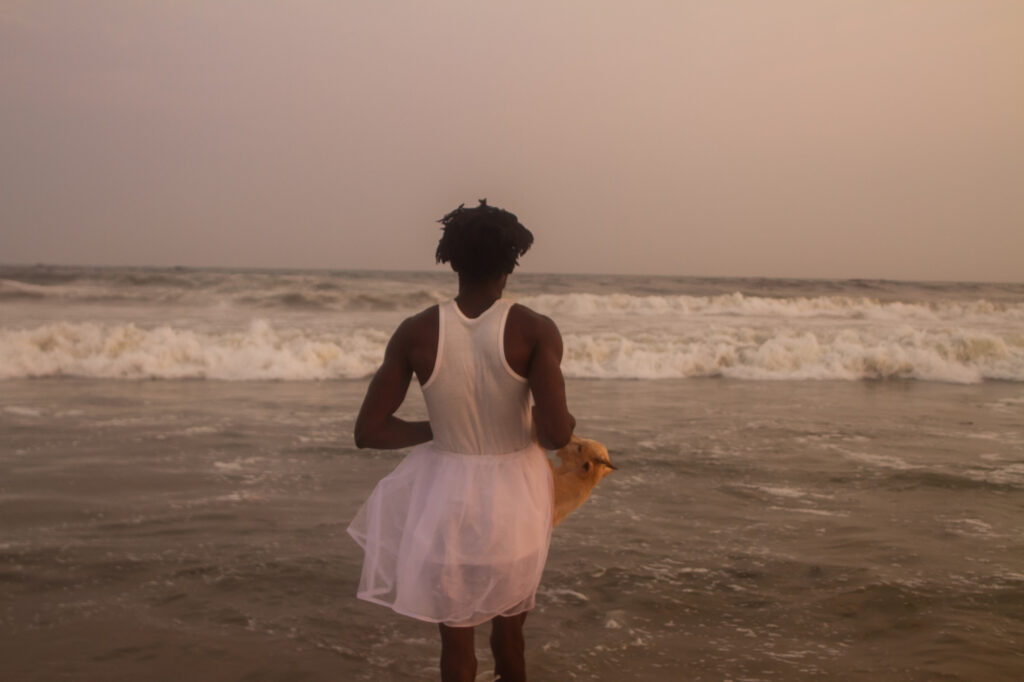
What has been your proudest moment professionally?
My biggest moment as a visual artist was definitely seeing my work acquired by Universal Emi UK in 2018. I was very proud to be invited as a guest star at Key West Photo Fest in 2018. I exhibited in Germany in 2012, and in Addis Ababa, Ethiopia in 2016, but my work being acquired by art collectors is mind-blowing.
Visit Djibril Drame’s website and follow him on Instagram @gadaay
:
